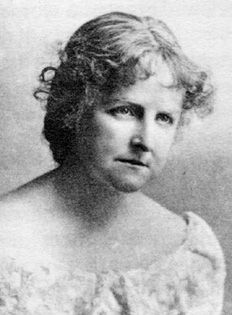"Henry had words with Edward in the study the night before Edward died," said Caroline Glynn.
She was elderly, tall, and harshly thin, with a hard colourlessness of face. She spoke not with acrimony, but with grave severity. Rebecca Ann Glynn, younger, stouter and rosy of face between her crinkling puffs of gray hair, gasped, by way of assent. She sat in a wide flounce of black silk in the corner of the sofa, and rolled terrified eyes from her sister Caroline to her sister Mrs. Stephen Brigham, who had been Emma Glynn, the beauty of the family. She was beautiful with a large, splendid, full-blown beauty; she filled a great rocking-chair with superb bulk of femininity, and swayed back and forth, her black silks whispering and her black frills fluttering. Even the shock of death (for her brother Edward lay dead in the house,) could not disturb her outward serenity of demeanour. She was grieved over the loss of her brother: he had been the youngest, and she had been fond of him, but never had Emma Brigham lost sight of her own importance amidst the waters of tribulation. She was always awake to the consciousness of her own stability in the midst of vicissitudes and the splendour of her permanent bearing.
But even her expression of masterly placidity changed before her sister Caroline's announcement and her sister Rebecca Ann's gasp of terror and distress in response.
"I think Henry might have controlled his temper, when poor Edward was so near his end," said she with an asperity which disturbed slightly the roseate curves of her beautiful mouth.
"Of course he did not know," murmured Rebecca Ann in a faint tone strangely out of keeping with her appearance.
One involuntarily looked again to be sure that such a feeble pipe came from that swelling chest.
"Of course he did not know it," said Caroline quickly. She turned on her sister with a strange sharp look of suspicion. "How could he have known it?" said she. Then she shrank as if from the other's possible answer. "Of course you and I both know he could not," said she conclusively, but her pale face was paler than it had been before.






